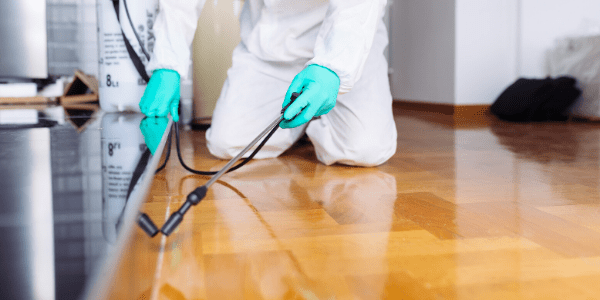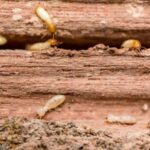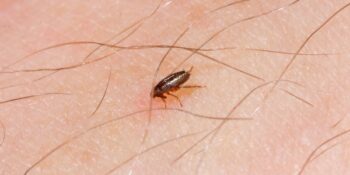
To be most effective, pest control services must be viewed as a process – not a one-time event. And like any good process, the approach is what makes the difference. That methodology is what protects your business, mitigates your exposure, and maintains the quality you expect. At Suburban Exterminating, our three-fold approach is known as Integrated Pest Management or IPM.
1. What is Integrated Pest Management?In short, IPM relies on biological, cultural, mechanical, and chemical controls to eliminate and prevent pests. Those biological controls involve the use of natural enemies, like native plants and plant pathogens, to effectively regulate the pest population. Cultural controls rely on specific practices – like eliminating standing water on your property – as a means of dealing with unwelcome insects. Mechanical controls are, perhaps, some of the most familiar. These are the traps that catch rodents and the like. Finally, chemical controls are pesticides, including environmentally friendly solutions for balancing safety and health with effectiveness. At Suburban Exterminating, our IPM approach requires the collaboration of three critical activities: assessment, implementation, and monitoring. Regardless of your business, our first step is always to assess the situation. We need to know where your facility is strongest, but also where any weak spots may exist. It is that hands-on approach that makes us able to confidently implement a plan tailored to the needs of your business. A one-size-fits-all approach is incompatible with IPM, and our customers appreciate that. Once those first two steps are in place, our team will consistently monitor your facility. To confirm our assessment and implementation were accurate, it’s important to make sure nothing slips through the cracks. If there is an issue, we revert to the assessment to gain a full understanding of the problem and its cause. Only then can we implement and effectively monitor. As you can see, IPM is a process that requires a dedicated team, which is exactly what you get with our services.
2. Why is IPM important to business?
This is a question that comes up frequently, and we’re always happy to have the opportunity to address it. IPM is important to businesses for several reasons, but for our customers, two consistently top the list: standards and susceptibility. As an owner, partner, or manager, you have the highest standards for your business. Whether you operate a restaurant, provide healthcare services, or care for children, your tolerance for bugs and pests is non-existent. In the age of online reviews and digital feedback, the last thing your organization wants or needs is bad publicity, and pests are sure to garner a negative reaction. IPM succeeds where one-time treatments fail and is backed up by a fail-safe system that provides maintenance and peace of mind. But none of this changes the fact that your business is constantly under attack from a wide variety of pests. No matter the line of work you are in, bugs want to get away from extreme temperatures and weather, and towards food, beverages, or even trash. When your business is susceptible, so are your reputation and bottom line. IPM mitigates that risk by minimizing your exposure to pests.
3. What companies use IPM?
A wide-range of industries and businesses benefit from the services IPM provides. Many of our customers include schools and daycares, restaurants, pharmaceutical manufacturers, and residential property managers.
- Schools and Daycares – from the youngest student to the oldest, maintaining a clean, safe environment is critical. In spaces shared by numerous children, controlling allergies, reducing the use of harsh pesticides, and eliminating the presence of pests – now and in the future – are just some of the benefits of an Integrated Pest Management approach.
- Restaurants – to remain viable in the foodservice industry, maintaining high standards of cleanliness is required. On top of that, specific documentation must be on-hand in case of inspection. IPM is the answer to both. We know the pest control hazards of dealing with food, as well as the need – in many cases – for green, environmentally safe pest control products in those spaces.
- Pharmaceutical manufacturers – in this arena, regulatory compliance and product safety is everything. A requirement of the U.S Food & Drug Administration is that there are no pests in these facilities. Suburban Exterminating meets – and even exceeds – the requirements of every major pharmaceutical auditor. Whether your audits are mandated by AIB International or HACCP, we will provide the necessary documentation, and help solve the structural, storage, and sanitation requirements of your business.
- Residential Property Managers – there is perhaps no quicker way to lose a potential tenant than by having pests make a surprise entrance during a property tour. With the availability and affordability of Integrated Pest Management, there is no reason to even allow the possibility. Not only do we assess, implement, and monitor, we continue to look for new problem areas and sources of potential infestations. Keeping your facilities bug-free is what’s best for everyone involved.
4. How do I get started with IPM?
Good news: this is the easy part! All you need to do is call us. Commercial pest control doesn’t have to be overwhelming, and neither is it time-consuming or cost-prohibitive. Our process saves business owners time and money upfront and in the future. At Suburban Exterminating, we have effective solutions for helping your organization eliminate pests, prevent their return, and maintain the documentation and compliance required at the local, state, and federal levels. Contact us today and let us put our IPM system to work for you.





